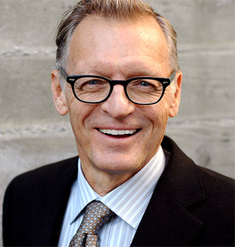
By Andrew Cohen
Michael Donaldson ’67, Kevin Marks ’82, Dave Feldman ’90, and Michael Rosner ’93 were recently named to Variety magazine’s annual list of 50 attorneys whose “recent deals and court battles have changed the shape of entertainment.”
Donaldson and Feldman serve up the same ingredient for success in their field. “A real passion for the arts,” said Feldman, whose clients include movie director Bryan Singer, actresses Lindsay Lohan and Krysten Ritter, and national sports talk show host Jim Rome. “That makes the sacrifices seem less onerous, and the triumphs more satisfying.” Donaldson, an icon among independent filmmakers because of his expertise in copyright law’s fair-use doctrine, agreed that “passion is paramount.”
Marks is a partner at Gang, Tyre, Ramer & Brown in Beverly Hills. He represents the Broccoli family, which co-owns the James Bond movie franchise with MGM. Marks executed numerous deals involving the new Bond movie Skyfall and secured writing contracts for the next two Bond installments. He also negotiated David O. Russell’s contract to direct Silver Linings Playbook, a follow-up to The Fighter, and he structured producer Stacey Sher’s deal on the Quentin Tarantino film Django Unchained.
Rosner, general counsel and executive vice president of corporate affairs at Relativity Media in Los Angeles, was an integral player in a multi-pronged deal to raise $350 million to fund the company’s planned expansion and future film projects. “It was a syndicated deal with a lot of lenders involved, which means a lot of lawyers, comments, and intensity,” Rosner told Variety.
A fair-use expert
Donaldson, a founding partner of Donaldson & Callif in Los Angeles, has become the go-to legal advocate for documentary filmmakers. His expertise on fair-use—which allows limited use of copyrighted material without permission from rights holders—has enabled scores of directors to make documentaries and independent films without fear of harsh penalties.
“We have clients tell us routinely, and I believe accurately, that they couldn’t make their films without our help in navigating the fair-use waters,” said Donaldson, who has 16 projects at this year’s Sundance Festival. “Otherwise, it would be economically unfeasible.”
Donaldson has successfully lobbied for exemptions to the Digital Millennium Copyright Act for documentarians. He recently worked with Jennifer Urban ’00—co-director of Berkeley Law’s Samuelson Law, Technology & Public Policy Clinic—to help draft a Senate bill that protects filmmakers who can’t find rights owners. He is also general counsel to Film Independent and the Writers Guild Foundation, which put on the annual LA Film Festival and Independent Spirit Awards, respectively.
Donaldson is best known for his work on independent projects such as This Film is Not Yet Rated, which included 134 clips under fair use. His expertise saved the filmmakers of Wanderlust over $400,000 and enabled the use of John Lennon’s song Imagine in the movie Expelled. “More films, and more interesting films, have been made because filmmakers have become conversant about fair-use,” he said. “It’s gratifying to be closely involved in that process.”
The president of the International Documentary Association, Donaldson co-authored the American Bar Association’s Legal Guide to Filmmaking and is the only U.S. attorney to help draft the 2007 Rome Resolution to harmonize fair use across the European Union. His book Clearance and Copyright is used in over 50 film schools and has become the industry’s standard reference book.
Entertainment deal-making
Feldman is a partner at Bloom Hergott Diemer Rosenthal LaViolette Feldman Schenkman & Goodman in Beverly Hills. He has spent 20 years negotiating movie and television deals for Singer, his first client, who directed The Usual Suspects and X-Men. Feldman recently spearheaded a groundbreaking contract for one of YouTube’s original content channels, Younghollywood.com, and led the team that renegotiated contracts for the three main cast members of Jersey Shore—making them reality television’s highest-paid stars. He also arranged major deals for Rome and Ritter, the lead in ABC’s Don’t Trust the B in Apartment 23.
A photographer and television news producer before going to law school, Feldman helped resurrect the Berkeley Entertainment Law Society and was an associate editor on the California Law Review. As a law student, he also produced Professor Robert Berring’s Commando Legal Research videotapes, which pioneered the use of video to teach legal research. “Working with Bob was the most exciting part of law school,” Feldman said. “He put a lot of faith in me to deliver a quality product and we had a great time on the project.”
Two decades later, Feldman represents some of entertainment’s biggest actors, writers, directors, producers, and content creators. Rome was a “brash young radio guy on one station” when he came to Feldman’s firm through a family friend and “got kicked down the masthead until he reached the youngest associate—me. I was intrigued by what he was doing, thought it was special, and we became friends. Personal relationships are crucial in this line of work.”
Common misconceptions about his practice? “That all we do is schmooze with Hollywood stars and attend lavish parties. Sure, I prefer going to premieres rather than going to court, but that’s because I enjoy the product of what I do, even with all the angst involved in major deal-making and the egos you sometimes encounter.”
Feldman has encountered situations he never imagined while a student at Berkeley Law: “Tracking down a client at a Coffee Bean & Tea Leaf to get the contract signed on a $15 million deal that had to be done that day. Staying past midnight on Lindsay Lohan’s Playboy shoot in order to review and approve every photo with her and the magazine’s art director. Flying to a foreign country on a moment’s notice to smooth over problems on a movie set so the director could keep filming. This business is constantly changing and full of surprises.”